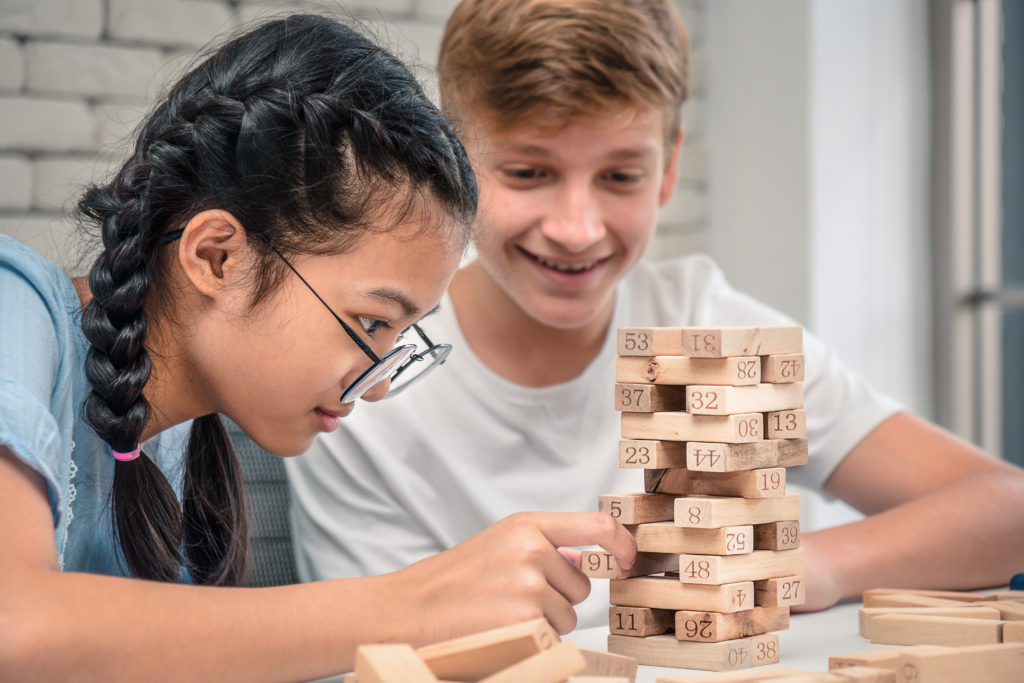
Thank you for choosing camp at Conundrum Escapes! We are excited to spend time with your extraordinary child and help them to develop their interests and skills. This guide provides information to help you and your child have a successful camp experience. Please read everything carefully, and let us know if you have any questions or concerns.
Contact Information
Director: Dr. Christy Byrd
Location: Conundrum Escapes, LLC
41 Technology Dr., Suite A, Garner, NC 27529
Phone: (919) 341-9352
Tax ID (For Dependent Care Savings Account Claims): 81-2446220
What to Bring
Please label all items with your camper’s name.
- Snack, lunch, and a water bottle.
- A laptop or tablet (optional). Please send chargers with devices as we have a limited number.
- Favorite games from home (optional).
Expectations for Behavior
In general, all campers, staff, and parents/guardians are expected to show respect to each other. Our philosophy is that children deserve positive environments that support emotional well-being and healthy development. Furthermore, we believe that young people should be involved in the decisions that affect them. At the beginning of each week, the campers and staff will jointly develop guidelines for behavior and consequences for violating the guidelines.
Escape Room Camp: Arrival and Departure
- Arrival: 8:30am-9am
- Departure: 1-1:30pm (half-day) and 4-4:30pm (full-day)
- There is convenient parking in front of our building. You can park and walk your child in.
- Campers need to be checked in and out with a designated staff member.
- Please have an adult notify staff by email or phone if the camper will be absent, arrive late, or leave early. Staff will not release campers without parent/guardian permission.
- A late fee of $5 per 5 minutes will be charged for children picked up late.
- Parents/guardians should notify staff if the camper will be driving themselves or will be dropped off/picked up by someone under the age of 18.
Track Out Camp: Arrival and Departure
- Arrival: 8am-9am
- Departure: 3pm-4pm
- Before and after care is available for arrivals between 7:30-8am and drop-offs between 4-6pm
- There is convenient parking in front of our building. You can park and walk your child in.
- A late fee of $5 per 5 minutes will be charged for children picked up late.
- Parents/guardians should notify staff if the camper will be driving themselves or will be dropped off/picked up by someone under the age of 18.
- Campers need to be checked in and out with a designated staff member.
- Please have an adult notify staff if the camper will be absent, arrive late, or leave early. Staff will not release campers without parent/guardian permission.
Health and Special Needs
- Our staff is committed to providing for the well-being and development of every camper. We maintain a small camp so that staff have the opportunity to get to know each camper well and adapt the camp experience to maximize their experience.
- Parents/guardians should inform staff of any allergies or food restrictions so that we can make appropriate plans.
- Parents/Guardians can assist staff in this goal by informing camp staff of any special health, behavioral, or other needs. We will work with families to develop appropriate plans for each camper, including plans for administering medication.
- Please do not send your child to camp if they have any signs of illness, including fever, coughing, sneezing, sore throat, diarrhea, or vomiting. A child must be free of diarrhea, vomiting, and fever for a full 24 hours before returning to the program.
Security
- Building: Only campers and staff are allowed in the building during camp hours. Guests and customers must receive permission to enter and must sign in and out.
- Personal property: Campers should limit the personal items they bring with them and all items should be labeled. Conundrum Escapes does not have a secure place to store items and is not responsible for any lost, stolen, or damaged items.
- Campers should not leave the building without a staff member or their authorized pick up person. If a camper is missing, at least one staff member will remain with the other campers while a second staff member attempts to locate the camper or contact the camper by cell phone. If necessary, staff will contact the camper’s parent/guardian or emergency contact and call 911.
Emergency Response
- If there is a minor accident during camp, the staff will administer appropriate first aid and will inform the adult picking up the camper at the end of the day.
- For emergencies requiring medical treatment, the staff will call 911 and the parent/guardian immediately. If unable to reach the parent/guardian, we will contact your emergency contact.
Next Generation Science Standards
Our camp is inspired by and strives to meet the Next Generation Science Standards in engineering design. Below is a brief summary of the performance expectations cultivated in the program.
| NGSS Performance Expectation | Related Learning Objectives | Related Activities |
| MS-ETS1-1. Define the criteria and constraints of a design problem with sufficient precision to ensure a successful solution, taking into account relevant scientific principles and potential impacts on people and the natural environment that may limit possible solutions. | -Define games Identify the five elements of games -Describe the overall process of game development -Describe the role of skills, chance vs. strategy, fun, and emotions in game design -Identify key principles in designing puzzles | In Lessons #1, campers are presented with a design problem: creating a game. They learn the features of games and principles of game design, which form the criteria and constraints of their design problem. In Lesson #2, campers continue thinking about the criteria and constraints on their design problem by learning about game and puzzle principles. |
| MS-ETS1-2. Evaluate competing design solutions using a systematic process to determine how well they meet the criteria and constraints of the problem. | -Analyze the five elements of a game -Identify questions to consider when refining a game design -Analyze feedback from playtesting | In Lesson #3, campers learn how to conduct a playtest and analyze feedback from playtesting. Playtesting allows game designers to try out different designs to see what best fits their criteria and constraints. |
| MS-ETS1-3. Analyze data from tests to determine similarities and differences among several design solutions to identify the best characteristics of each that can be combined into a new solution to better meet the criteria for success. | -Analyze the five elements of a game -Identify questions to consider when refining a game design -Analyze feedback from playtesting | In Lessons #4 and #5, campers continue to playtest and consider how variations in their puzzles contribute to their game design. |
Questions and Concerns
Please contact Christy Byrd with any questions at [email protected].
